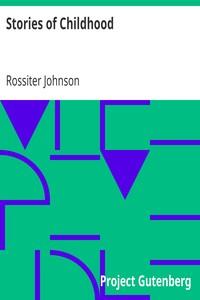|
|
Read this ebook for free! No credit card needed, absolutely nothing to pay.Words: 16991 in 5 pages
This is an ebook sharing website. You can read the uploaded ebooks for free here. No credit cards needed, nothing to pay. If you want to own a digital copy of the ebook, or want to read offline with your favorite ebook-reader, then you can choose to buy and download the ebook.

: The Mirror of Literature Amusement and Instruction. Volume 10 No. 276 October 6 1827 by Various - Popular literature Great Britain Periodicals The Mirror of Literature Amusement and Instruction@FreeBooksTue 06 Jun, 2023 THE MIRROR OF LITERATURE, AMUSEMENT, AND INSTRUCTION. There is given Unto the things of earth, which Time hath bent, A spirit's feelings, and where he hath leant His hand, but broke his scythe, there is a power And magic in the ruin'd battlement For which the palace of the present hour Must yield its pomp, and wait till ages are its dower. BYRON. The present cathedral is represented to have been merely the church of the monastery, which was entirely rebuilt in the commencement of the fourteenth century. The style of architecture in the different parts of this cathedral is accurately discriminated in the following account from the pen of Bishop Littleton, F.S.A.:--"The lower parts of the chapter house walls," says he, "together with the door-way and columns at the entrance of the chapter-house, may be pronounced to be of the age of Stephen, or rather prior to his reign, being fine Saxon architecture. The inside walls of the chapter-house have round ornamental arches intersecting each other. The cathedral appears to be of the same style of building throughout, and in no part older than Edward the First's time, though some writers suppose the present fabric was begun in king Stephen's time; but not a single arch, pillar, or window agrees with the mode which prevailed at that time. The great gateway leading into the College Green is round-arched, with mouldings richly ornamented in the Saxon taste." From this account it appears probable that the chapter-house and gateway are all the present remains of the ancient monastery. The mutilations which the cathedral of Bristol has undergone, are not entirely to be referred to the era of the dissolution of the monasteries, since this structure suffered very considerably during the period of the civil wars. The ruthless soldiers discovered their barbarism by violating the sacred tombs of the dead, and by offering every indignity which they supposed would be considered a profanation of the places which the piety of their ancestors consecrated to religion. At such instances of the violence of civil factions, the sensitive mind shudders with disgust. DEBTOR AND CREDITOR. Run not into debt, either for wares sold or money borrowed; be content to want things that are not of absolute necessity, rather than to run up the score: such a man pays at the latter a third part more than the principal comes to, and is in perpetual servitude to his creditors; lives uncomfortably; is necessitated to increase his debts to stop his creditors' mouths; and many times falls into desperate courses. SIR M. HALE. "The greatest of all distinctions in civil life," says Steele, "is that of debtor and creditor;" although no kind of slavery is so easily endured, as that of being in debt. Luxury and expensive habits, which are commonly thought to enlarge our liberty by increasing our enjoyments, are thus the means of its infringement; whilst, in nine cases out of ten, the lessons taught by this rigid experience lead to the bending and breaking of our spirits, and the unfitting of us for the rational pleasures of life. All ranks of mankind seem to fall into this fatal error, from the voluptuous Cleopatra to the needy philosopher, who doles out a mealsworth of morality for his fellow-creatures, and who would fain live according to his own precepts, had he not exhausted his means in the acquisition of his experience. I fear that I am breaking my rule in not confining myself to a few shades of debt and conscience, with a view of determining how far they are usually reconciled among us. The task may not prove altogether fruitless; notwithstanding, to find honest men, would require the lantern of Diogenes, and perhaps turn out like Gratiano's wheat. AN ENGLISHMAN'S PRAYER Grant, righteous Heaven, however cast my fate On social duties or in toils of state, Whether at home dispensing equal laws, Or foremost struggling for the world's applause, As neighbour, husband, brother, sire, or son, In every work, accomplished or begun, Grant that, by me, thy holy will be done. When false ambition tempts my soul to rise, Teach me her proffer'd honours to despise, Though chains or poverty await the just, Though villains lure me to betray my trust, Unmoved by wealth, unawed by tyrant, might Still let me steadily pursue the right, Hold fast my plighted faith, nor stoop to give For lengthen'd life, the only cause to live. ITALY. Free books android app tbrJar TBR JAR Read Free books online gutenberg More posts by @FreeBooks
: His Excellency the Minister by Claretie Jules Roberts Henri Translator - Fiction@FreeBooksTue 06 Jun, 2023

: Stories of Childhood by Johnson Rossiter Editor - Short stories; Children Fiction@FreeBooksTue 06 Jun, 2023
|
Terms of Use Stock Market News! © gutenberg.org.in2025 All Rights reserved.






